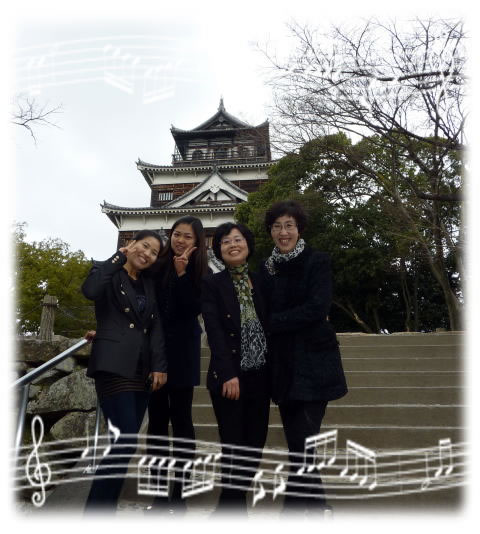Over the Years
Home > Over the Years > Four Nurses from Korea Invited for Training 2012_3
Four Nurses from Korea Invited for Training 2012_3
Names and Titles of Trainees:
Kyung-Sun Kang, Registered Nurse
Department of Radiation Oncology, Yeungnam University Hospital
Young-Lan Lee, Head Nurse
Regional Cancer Center, Gyeongsang National University Hospital
Mi-Seon Jeong, Nurse
Sangju Red Cross Hospital
Jeong-Baek Lee, Nurse
Kwak Hospital
Period of Training:
Training Organizations (in order of visits):
Hiroshima Red Cross Hospital & Atomic-bomb Survivors Hospital
Kurakake Nozomi-en (A-bomb survivors nursing home)
Hiroshima University Hospital (Advanced Emergency and Critical Care Center and Department of Radiation Oncology)
Hiroshima Atomic Bomb Casualty Council
Radiation Effects Research Foundation
Hiroshima Peace Memorial Museum, etc.
Training Course:
Diagnosis of radiation disorders
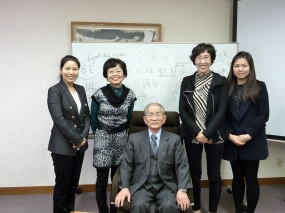
With Dr. Nanao Kamada, Board Chairman of Hiroshima A-Bomb Survivors Relief Foundation (center)
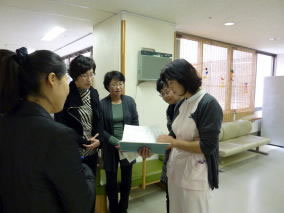
Trainees receiving explanation from a nurse at Kurakake Nozomi-en
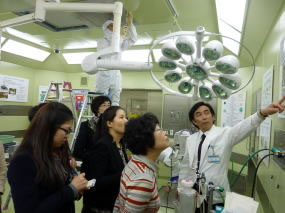
With Professor Koichi Tanigawa, Director of Advanced Emergency and Critical Care Center (right)
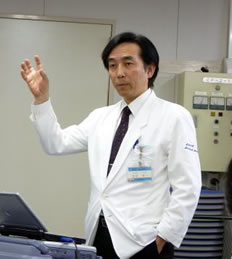
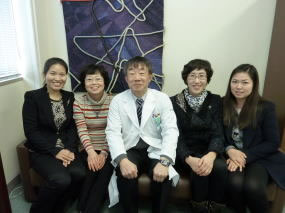
With Professor Yasushi Nagata of Department of Radiation Oncology, Hiroshima University Hospital (center)
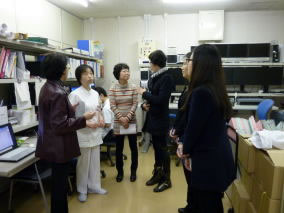
Trainees receiving explanation from a nurse at the Department of Radiation Oncology, Hiroshima University Hospital
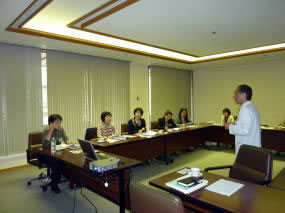
With Dr. Hideo Sasaki, Director of Health Management & Promotion Center, Hiroshima Atomic Bomb Casualty Council (right)
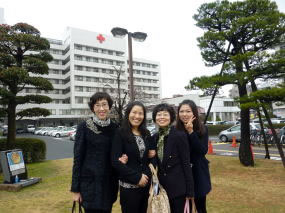
In front of Hiroshima Red Cross Hospital & Atomic-bomb Survivors Hospital
Feedback
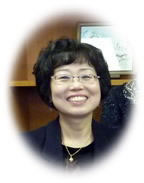
[Ms. Kyung-Sun Kang]
I was able to understand the physical, biological, and mental effects of radiation exposure through this training. I would like to use the knowledge that I gained in this training in examination of accidental radiation exposure and the psychological care of radiation-exposure victims. I thank all instructors for giving excellent lectures as well as HICARE for providing an opportunity to listen directly to the lectures of distinguished experts.
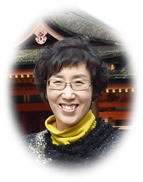
[Ms. Young-Lan Lee]
I was also able to realize the importance of the role that HICARE is playing with a firm faith in the development of research and treatment of radiation-exposure victims and contribution to world peace through this training project for medical professionals.
I had thought that HICARE was an institution engaged only in research and treatment of those exposed to radiation in past events until I came to Japan for this training. Through this training, I have understood that HICARE is a future-oriented organization aiming to develop projects systematically in cooperation with other related organizations. Since we were provided opportunities to freely ask questions about radiation exposure during the training, I was able to acquire much new knowledge and information. I was also impressed at seeing an ideal model of nursing care at Kurakake Nozomi-en. Director Kamata's story of his philosophy stimulated me to look back at my own way of life. The five-day experience in Hiroshima was "spots of time," borrowing the words of Wordsworth, that rekindled my passion.
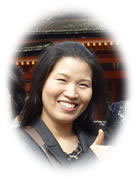
[Ms. Mi-Seon Jeong]
Knowing the serious damage caused by an atomic bomb that hit Hiroshima, I realized the terror of atomic weapons and reconfirmed the importance of creating the nuclear-free pacific world. The lecture provided by Dr. Tanigawa from Hiroshima University Hospital, who had in person been engaged in relief operation of the nuclear accident in Fukushima last year also relieved me from the fear caused by ignorance of radiation. In Korea, 23 nuclear power stations are currently operating. Based on the knowledge that I acquired through this training, I would be able to support relief operation without fear if a nuclear accident should occur in Korea.
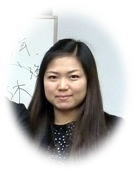
[Ms. Jeong-Baek Lee]
The most impressive program in the training was the visit to Kurakake Nozomi-en. All staff members of the nursing home were keeping a smile without expressing bluntness or displeasure at all while they were working. I realized that mental care is very important in treatment of A-bomb victims because they had received a deep wound not only physically but also mentally. I was moved by the attitudes of Dr. Kamata, the director of the home and his staff members who treated the inhabitants as if they were their own family. I was able to learn warm hospitality as well as abundant information and knowledge through this training. As a nurse of a pediatrics department, I will keep in mind to keep smiling whenever I attend the hospitalized children and create a warm atmosphere in order for them to feel at home.
